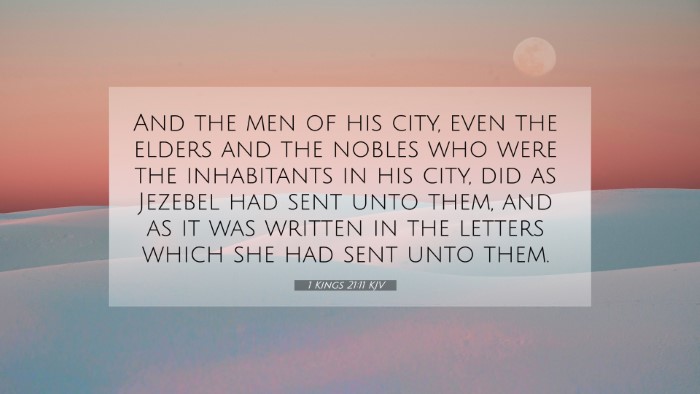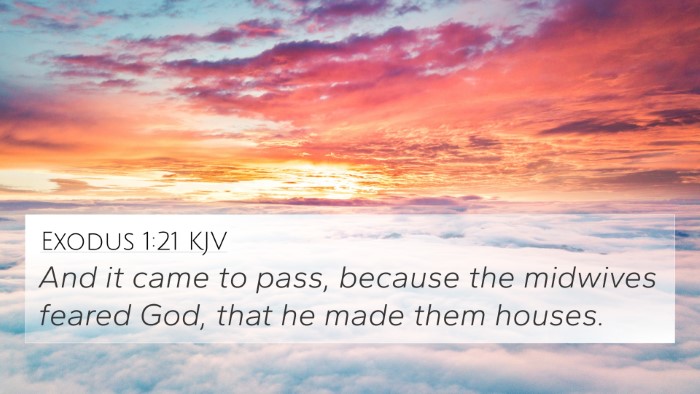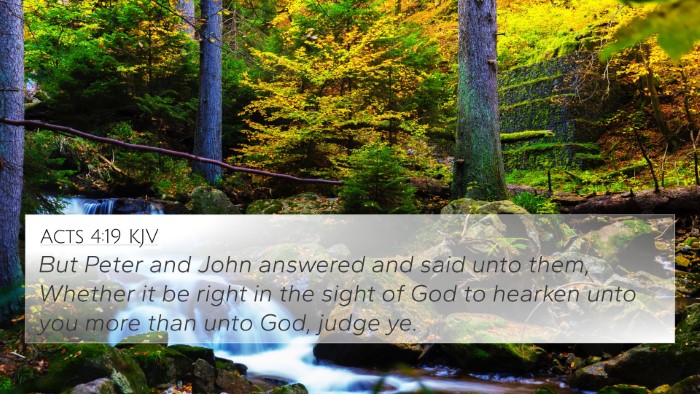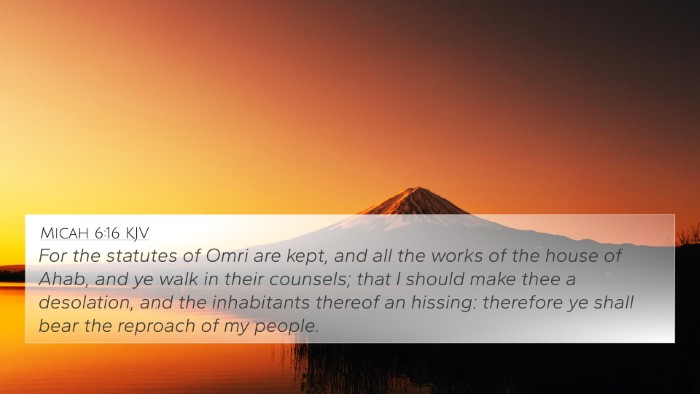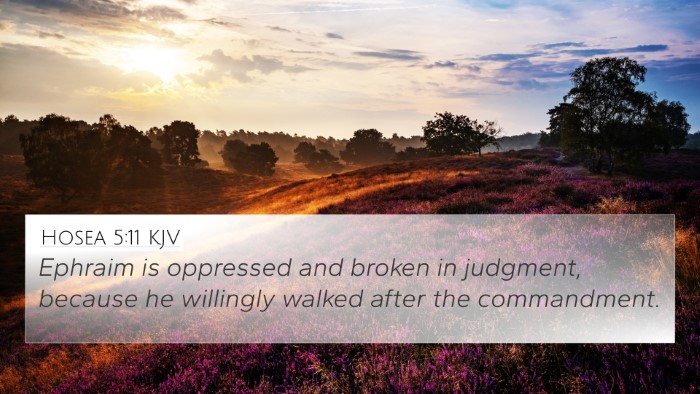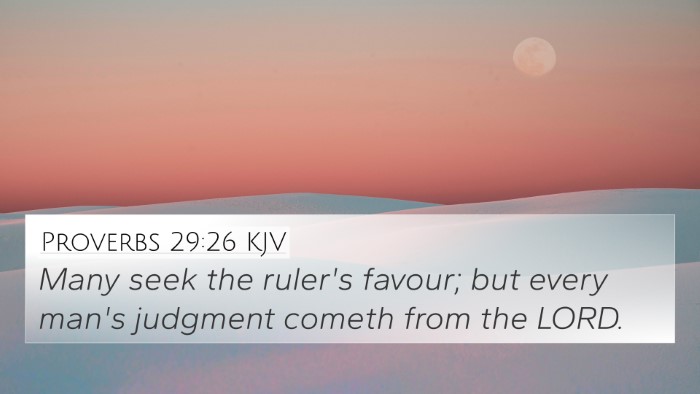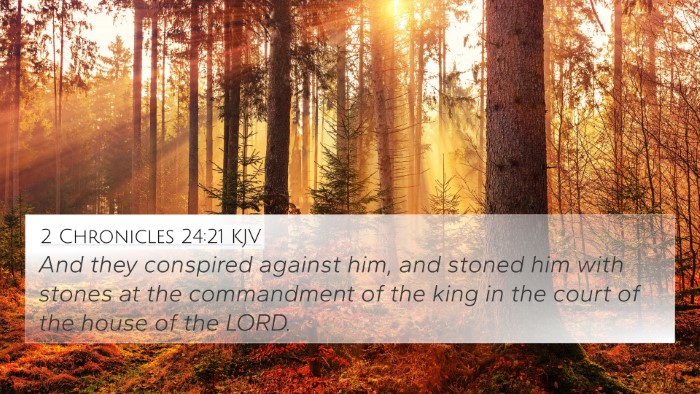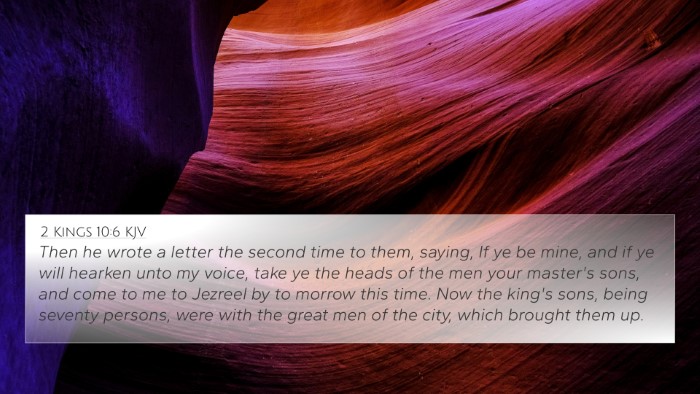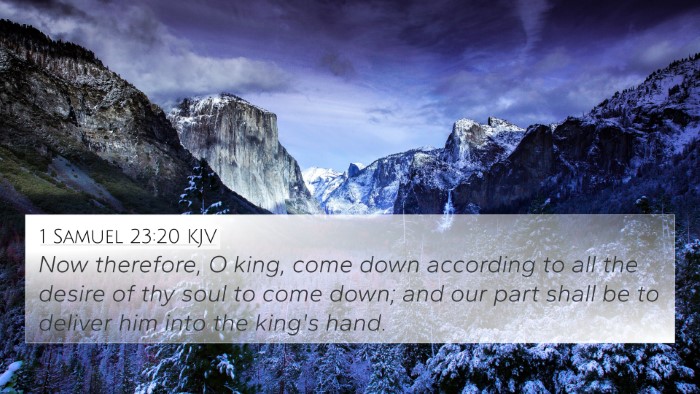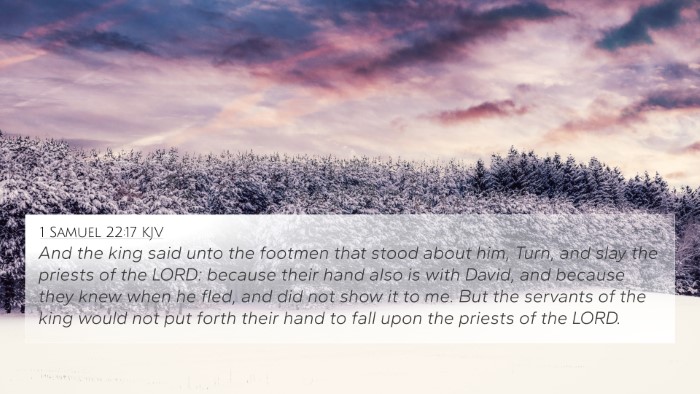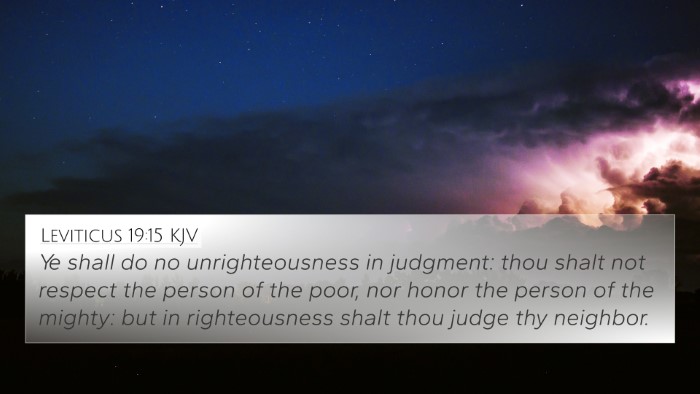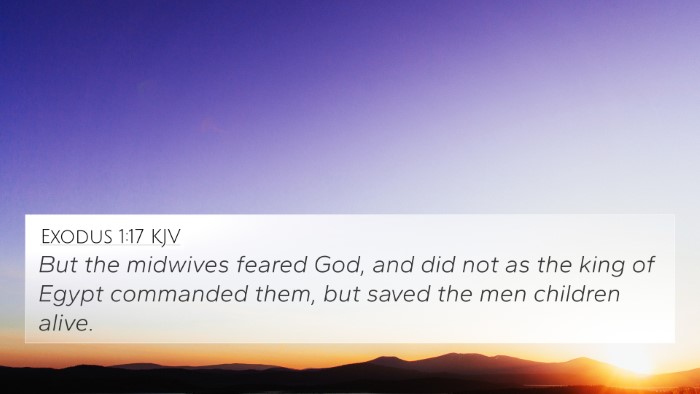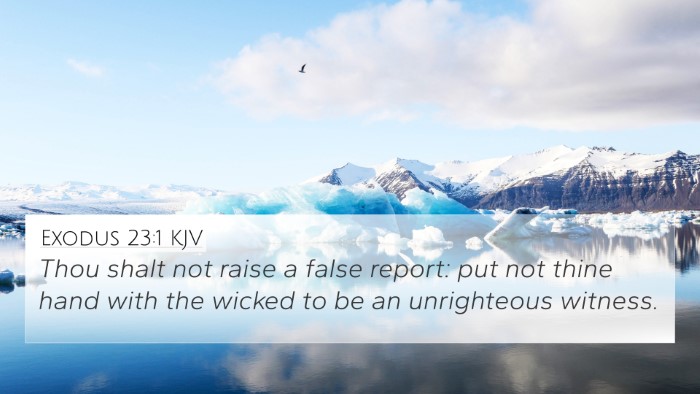Understanding 1 Kings 21:11
Verse: 1 Kings 21:11
This biblical passage narrates the story of Ahab, King of Israel, and his conniving desire for Naboth's vineyard. The elders and nobles of Jezreel, manipulated by Queen Jezebel, publicly accuse Naboth of blasphemy to justify his unjust execution.
Context and Summary
The context of 1 Kings 21 is critical in understanding the moral and ethical implications it presents. Ahab's character is marked by jealousy and weakness, particularly under the influence of Jezebel, who is emblematic of unrestrained ambition and immorality. The passage highlights the nature of power abuse and societal manipulation.
Commentary Insights
Matthew Henry’s Commentary:
- Henry emphasizes the culpability of Ahab and Jezebel, illustrating how corrupt governance leads to grave injustices.
- The passage serves as a warning against the dangers of allowing personal desires to corrupt justice and morality.
- He notes that Naboth, portraying righteousness, stands in stark contrast to the wickedness of the monarchs, symbolizing the plight of the innocent in a corrupt society.
Albert Barnes’ Commentary:
- Barnes points out that the actions of Ahab and Jezebel display a calculated effort to evade divine law for personal gain.
- The public framing of Naboth showcases a dangerous precedent for societal values where truth can be manipulated for the sake of power.
- He concludes that the incident serves as a divine commentary on the inevitability of justice, where evil cannot ultimately thrive without consequences.
Adam Clarke’s Commentary:
- Clarke highlights the manipulation tactics used by Jezebel, which demonstrate both cunning and ruthlessness to achieve personal desires.
- He remarks on the irony of Naboth’s fate, suggesting that even those who seem powerful are ultimately pawns in a larger divine narrative.
- Clarke's observations underscore the theme of divine justice, reinforcing that wrongful actions lead to dire consequences.
Cross-References and Thematic Connections
1 Kings 21:11 is interwoven with several other biblical verses that provide depth and insight into its themes of justice, corruption, and divine accountability. Here are some notable cross-references:
- Exodus 20:16 - The commandment against bearing false witness resonates as a fundamental moral principle violated in this narrative.
- Micah 6:10-11 - Questions the integrity of merchants and rulers, echoing the corrupt nature depicted in Ahab's actions.
- Proverbs 29:12 - Discusses the consequences of leaders who heed falsehoods, linking directly to the deceitful acts of Jezebel and Ahab.
- Psalm 37:28 - Affirms God's commitment to justice, suggesting a rebuttal to any fears regarding the apparent success of the wicked.
- Isaiah 5:21 - A warning against those who call evil good, reflecting the moral inversion evident in the actions of Ahab and Jezebel.
- Jeremiah 22:3 - Emphasizes the protection of the innocent, which Naboth represented in the face of royal malfeasance.
- James 5:6 - Highlights the condemnation of the righteous, paralleling Naboth's wrongful sentencing to the character of the rich oppressing the poor.
Thematic Analysis
The themes derived from 1 Kings 21:11 involve:
- Abuse of Power: A centralized theme illustrating how power can corrupt moral judgement.
- Justice and Retribution: The inevitable consequence of wrongdoing serves as a reminder that divine justice prevails.
- Courage and Integrity: Naboth’s stand for righteousness offers a counter-narrative to the prevailing corruption.
Tools for Bible Cross-Referencing
Utilizing cross-references can greatly enhance your understanding of scriptural texts. Here are some tools and methods for effective Bible cross-referencing:
- Bible Concordance: A reference tool that lists words and phrases used in the Bible, allowing for thematic searches.
- Bible Cross-Reference Guide: Resources that compile related verses, aiding in comparative Bible verse analysis.
- Bible Chain References: A method that links verses based on shared themes or concepts, facilitating deeper study.
- Cross-Referencing Bible Study Methods: Techniques such as thematic essays or comparative studies can illuminate connections within Scripture.
User Guide for Cross-Referencing
For those seeking to deepen their understanding of Scripture through cross-references:
- Start with specific verses to identify related passages.
- Utilize Bible reference resources to find connections between Old and New Testament themes.
- Employ cross-reference systems that highlight thematic links, making Bible verses that relate to each other stand out.
- Ask questions such as, "What verses are related to 1 Kings 21:11?" to guide your search.
Conclusion
The exploration of 1 Kings 21:11 reveals profound truths about human nature, justice, and the overarching plan of God. Through careful study and cross-referencing other biblical texts, one can appreciate the intricate tapestry of Scripture and its timeless relevance. Engaging with these texts not only enhances knowledge but deepens one’s faith journey.


